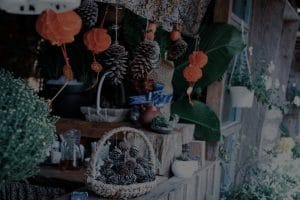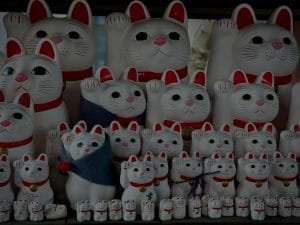**Abstract:** Discover how Feng Shui ornaments can aid in navigating life changes, supporting transitions and personal growth. Explore practical ways to harness their energy for positive transformation.
Understanding Feng Shui and Its Impact on Life Changes
Feng Shui, the ancient Chinese practice of arranging space to create harmony, offers valuable insights into managing life transitions. As we face changes—be it a new job, relationship, or personal growth—our environment can significantly influence our emotional and mental states. By integrating Feng Shui principles and ornaments into our spaces, we can foster an atmosphere conducive to positive change.
Choosing the Right Ornaments for Your Journey
Selecting the right Feng Shui ornaments is essential for supporting your unique journey. Each ornament carries specific meanings and energies. For instance, a crystal represents clarity and focus, ideal for someone embarking on a new career path. Similarly, a dragon figurine symbolizes strength and courage, making it perfect for those facing personal challenges. Understanding these associations can help you choose items that resonate with your current life phase.
Creating a Harmonious Space for Growth
To facilitate personal growth, it’s vital to create a harmonious environment. Start by decluttering your space, as clutter can block energy flow and create feelings of stagnation. Once your space is clear, strategically place Feng Shui ornaments. For example, positioning a wealth vase in the southeast corner of your home can attract abundance and prosperity. These small adjustments can significantly impact your mindset and openness to change.
Enhancing Emotional Well-Being with Feng Shui
Emotional well-being is critical during life transitions. Feng Shui ornaments, such as calming water features or soothing colors, can help create a peaceful atmosphere. Water elements symbolize wealth and prosperity, while colors like blue and green promote tranquility and healing. Incorporating these elements can help you navigate emotional turbulence and foster resilience as you adapt to new circumstances.
Using Symbols of Protection and Strength
During challenging times, having symbols of protection and strength can be incredibly comforting. Feng Shui offers various ornaments that embody these qualities. For instance, the Kuan Yin statue symbolizes compassion and protection, providing a sense of safety during uncertain times. Similarly, the tortoise represents stability and endurance, serving as a reminder to stay grounded amidst change. Placing these items in your living space can create a supportive environment for growth.
Building a Supportive Community Through Feng Shui
Feng Shui isn’t just about personal space; it also extends to relationships and community. Surrounding yourself with supportive individuals can enhance your journey through life changes. Consider hosting gatherings in a Feng Shui-aligned space, where positive energy can flow freely, fostering connections and collaboration. By creating an inviting atmosphere, you encourage open dialogue and support, making transitions feel less daunting.
Integrating Mindfulness and Feng Shui Practices
Combining mindfulness practices with Feng Shui can amplify the benefits of your efforts. Engage in meditation or yoga in spaces adorned with Feng Shui ornaments to deepen your connection with your environment. This practice not only promotes relaxation but also allows you to reflect on your intentions and goals during times of change. A mindful approach to your surroundings can enhance your ability to navigate transitions gracefully.
Conclusion: Embrace Change with Feng Shui
Navigating life changes can be challenging, but with the right tools, it can also be a transformative experience. Feng Shui ornaments serve as powerful allies, helping you create a supportive environment that fosters growth and resilience. By understanding their significance and strategically placing them in your space, you can harness their energy to navigate transitions with confidence. Embrace the journey ahead, knowing that your environment is aligned with your aspirations and well-being.










